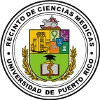By: Dr. Braulio Jimenez-Velez
Diethylene glycol (DEG) — a prime component of antifreeze — has been used as a cheap substitute for glycerin in the formulation of toothpaste and various medications and has figured in at least eight mass poisonings around the world in the past two decades. DEG is lethal to humans at doses around 1 mL/kg and has caused mass poisonings in many countries such as Haiti, Nigeria, Bangladesh, Argentina, and twice in India. The most recent mass poisoning event of reported in Panama and was referred to as the “Panama Syndrome”.
Forty-six barrels of DEG falsely labeled as glycerin arrived to Panama in 2006. The New York Times took a special interest in the Panama poisoning incident and traced a toxic pipeline from the Panamanian port of Colón, back through trading companies in Barcelona, Spain, and Beijing, China, to its origin near the Yangtze Delta in a place local people call “chemical country”. As the cargo passed through several ports, the name of the manufacturer and previous owner were eliminated from the shipment. It just happened that the manufacturer was not certified to make pharmaceutical ingredients.
Workers at a government-run laboratory in Panama, unaware the barrels contained DEG, mixed the syrup falsely labeled as “glycerin” into 260,000 bottles of cough and anti-allergy syrups. The results were devastating for the country. Many children were given the cough syrup by their own parents. But most of the victims were hypertension or diabetic patients between the ages of 40 and 80 years. Panamanian families reported 365 cases from the poisoning, 174 of which and 115 fatalities have been confirmed to date. The syndrome is characterized by gastrointestinal symptoms, renal failure and paralysis. The kidneys fail first, then the central nervous system begins to misfire. Paralysis spreads, making breathing difficult and ending in death for most of the victims.
